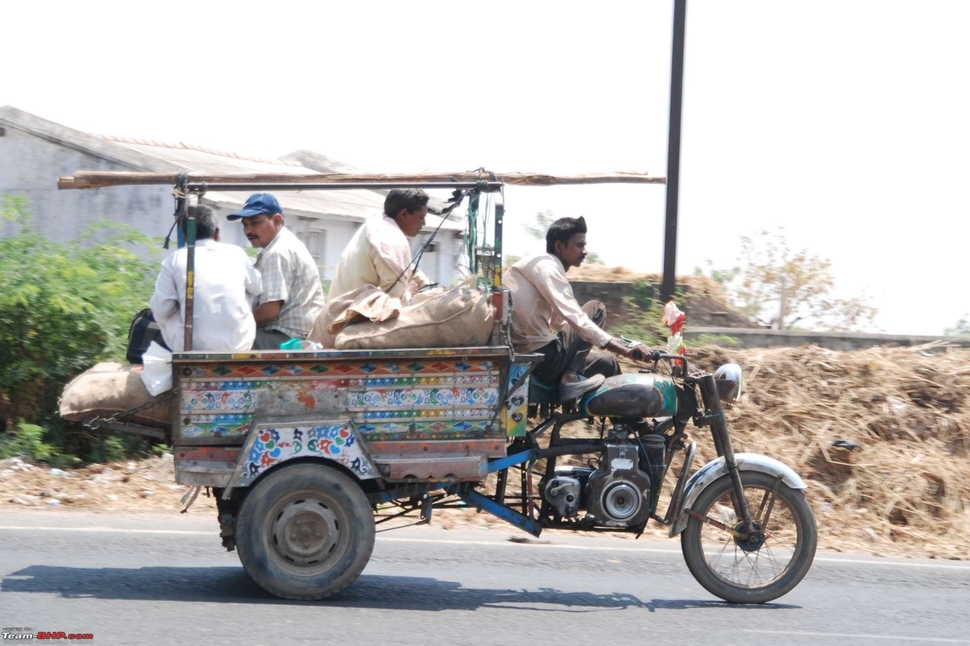Today I saw a fantastic presentation by Ravi Nadjou, on the subject ‘Jugaad’, on which he has spent years of studying. Jugaad is a Hindi word that means an improvised fix, a clever solution born in adversity. He noted that a lot of this is present in less developed countries, since the technical and economic resources are low. The first example he mentioned, was a design by Mansukh Prajapati, a potter in India, who has created a fridge entirely made of clay that does not consume electricity. The second impressive example he gave, was a giant billboard in Lima that absorbs air humidity and converts it into purified drinking water, which is really scarce in that dry area. He realized that creativity might be the most precious renewable resource.1 So, why does humanity need these forms of innovation, and where are they currently heading?
The first and rather obvious goal of these Jugaad innovations, is that they can accommodate the basic needs of the poor. Other, more sophisticated methods of solving their problem already exist, but are not within their reach. However, more can be said about the importance of Jugaad innovations. The business model of high-tech firms nowadays is often focused on wealthy people. Due to high pricing, new technologies can only be adapted by these wealthy people, enlarging the disparity between rich and poor. Jugaad however, enables inclusive growth. This form of growth allows opportunities for everyone to participate in the growth process while making sure that benefits are shared, in countries where people have been excluded from the fruits of economic growth and development.2
Very interesting is the fact that this way of sustaining growth and prosperity is nowadays also happening in the western world. Companies today encounter the huge potential of doing more with less. It has become increasingly popular in the United States and Europe under the appellation ‘Frugal Innovation’. This does not only happen on the field of technological innovation, but also in the development of services. For instance, BlaBlaCar3 has rapidly emerged as Europe’s leading car-sharing community. It provides passengers with a less expensive and more flexible alternative to traditional means of transportation. But, is this very desirable trend of not focusing on the state-of-the-art technologies and services, but on doing more with less, really economically viable? Can focusing on cheapness be economically viable? The answer is yes. In the U.S. only, there are 46.7 million people living in poverty.4 Imagine how large the scale of frugal innovations worldwide could be. By not focusing on making products as exclusive and sophisticated as possible, but trying to make it accessible for so many people as possible, companies should be able to make enough profit to ensure their growth. Furthermore, this larger scale would be a blessing for humanity as a whole. How can we reach this?5
The key to successful frugal innovation is collaboration. The reason why Jugaad innovations occur, is the presence of the understanding of the problem and the real urge to innovate is there amongst poorer people in developing countries. Many of the developers of Jugaad innovations did not go to school and do not invent their ideas in big research and development labs. This is where huge steps in efficiency have to be made. Resources, knowledge and money are widely available in the western world. If we would be able to harvest the creativity and understanding of the real problems amongst the poor in order to add our superb knowledge, frugal innovation products might just bridge the gap between the poor and the rich.
---
Sources:
[1] Ted Navi Radjou in TED Radio Hour: http://www.npr.org/2015/07/17/421495817/can-limited-resources-lead-to-better-innovation
[2] Web lecture: Frugal Innovation & Inclusive Development: http://delftxdownloads.tudelft.nl/RI101x-ResponsibleInnovation/Week4/RI101x-4.5-transcript.pdf
[3] BlaBlaCar – Share city-t-city car journeys with a trusted community of 20 million verified members: https://www.blablacar.co.uk/
[4] Talk poverty – Basic Statistics: http://talkpoverty.org/basics/
[5] Frugal innovation – A new approach pioneered in the Global South: http://ideas4development.org/en/frugal-innovation-new-approach-pioneered-in-the-global-south/
